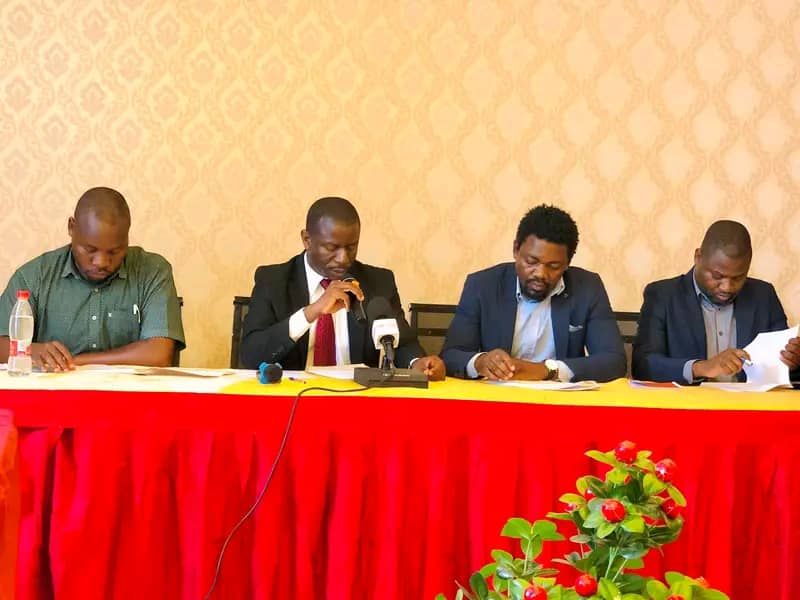By Burnett Munthali
Civil Society Organizations (CSOs) operating under the National Advocacy Platform (NAP) have raised significant concerns regarding corruption allegations made by lawyer Alexious Kamangila. During a press briefing held in Lilongwe today, NAP Chairperson Benedicto Kondowe read a statement calling for a thorough investigation into the alleged misconduct of certain judges within Malawi’s judiciary.
Kondowe emphasized the need for immediate action, urging the Judicial Service Commission and relevant authorities to launch a prompt inquiry. “This inquiry is essential not only to protect the integrity of judicial officers but also to restore public confidence where it is needed,” he stated. The call for investigation comes at a time when public trust in the judicial system is critical for upholding the rule of law and ensuring justice for all Malawians.

The backdrop to this appeal is a series of posts made by Kamangila on his Facebook page, where he accused Justice Ken Manda of engaging in corrupt practices. He pointed to specific judgments as examples of misconduct, raising serious questions about the impartiality and integrity of the judiciary. These allegations have sparked a heated public debate, underscoring the pressing need for accountability within the judicial system.
In addition to the call for an investigation, Kondowe highlighted the urgency of judicial reforms. He stressed the importance of presenting the Judicial Administration and Constitutional (Amendment) Bills during the upcoming November Mid-Year Budget Review meeting. These bills are seen as vital steps towards enhancing the efficiency and transparency of the judiciary, addressing long-standing issues that have hindered the delivery of justice in Malawi.
The demand for reform reflects a growing recognition among civil society actors that the judicial system must be strengthened to better serve the needs of the population. The issues raised by Kamangila and echoed by the NAP highlight the critical need for an independent judiciary that operates free from corruption and undue influence.
As the NAP continues to advocate for justice and accountability, the spotlight is now on the Judicial Service Commission to take decisive action. The outcomes of this inquiry and potential reforms could significantly impact the future of Malawi’s judiciary and its ability to uphold the rule of law.
The implications of these developments are profound, as public trust in judicial institutions is foundational to a functioning democracy. Civil society’s active involvement in pushing for accountability signifies a crucial step in the ongoing fight against corruption and the quest for justice in Malawi. The response of the authorities will be closely monitored by both the public and civil society organizations as the nation grapples with these serious allegations.


